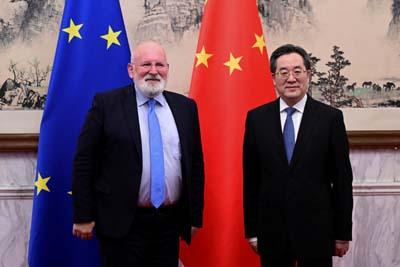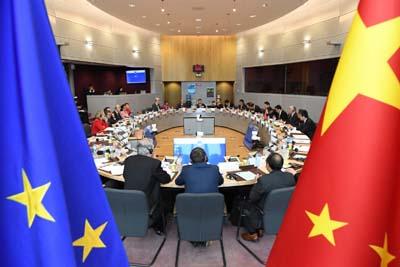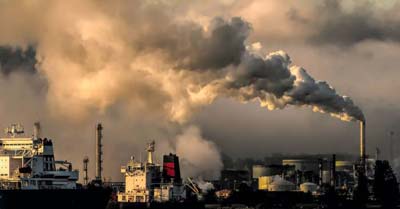
EU prepares for COP29 showdown with China over climate aid
Zia Weise
Brussels: The European Union plans to pressure emerging economies such as China to contribute funding for climate action in developing nations at global negotiations in November, according to POLITICO.

Financing is at the center of this year’s United Nations climate conference, known as COP29, with developing countries clamoring for a significant increase in funds to help them cut emissions and prepare for the consequences of global warming.
The current funding pledge of $100 billion a year — which runs until 2025 and needs to be replaced with a new target at COP29 — is financed by countries classified as industrialized when the U.N. climate treaty was drawn up in 1992.

The EU is the largest contributor and intends to continue providing funding, but wants countries that have become wealthier in the past three decades to chip in as well, according to a draft of the bloc’s COP29 position obtained by POLITICO.
In the document, dated July 26, the EU calls for an expansion of the target’s “contributor base” reflecting the “evolving nature of respective capabilities” since the 1990s.
“Such broadening of contributions provides an opportunity to increase the finance to support the most vulnerable countries and communities and reflects strong global solidarity towards them,” the draft paper continues. “In this context [the EU] CALLS on all countries according to their financial capabilities, including emerging economies, to contribute to the new goal.”

The statement does not mention a specific country, but European diplomats and officials have sought to push Beijing in particular to contribute funding, given China has not only become the world’s second-largest economy but also the top emitter of planet-warming greenhouse gasses.
Last week, senior German climate negotiator Jochen Flasbarth told POLITICO that rich countries would only step up funding if China starts paying up.
The draft position also suggests that the EU may push to limit the list of possible beneficiaries or direct more money to countries that are particularly vulnerable to global warming, rather than allow all countries classified as developing to access the same level of funding.
The bloc “stresses the importance” of setting up a new funding target “while taking into account the needs and priorities of the most vulnerable countries,” such as island nations and members of a group known as the Least Developed Countries. The document shows that an earlier draft referred more broadly to “the needs and priorities of developing countries.”
The fight reflects a dispute last year over whether China would donate to a fund to support damaged communities. China stared down the demands from the U.S., EU and their allies, despite the UAE breaking ranks and becoming the first country from outside the traditional donor group to give climate finance through an official U.N. fund.
That fund garnered around $655 million. The showdown in November scales up the financial stakes many times over — with some developing countries setting $1 trillion annually as their starting negotiating point — and is seen by European diplomats as a moment to fundamentally break with what they view as an outmoded distinction between rich and poor.
It is not only China that is seen as an able contributor. Wealthy Gulf states, with their own huge legacy of climate damage via sales of their fossil fuel reserves, such as Qatar, UAE and Saudi Arabia, are likely to be pressured to stump up. Singapore will likely receive pressure, as well.
In the draft document, the EU also suggests that the bulk of the new target can’t come from national budgets, underlining that “private investments will have to undertake the largest share of the required investment in low emissions, resource-efficient and climate-resilient development.”
The draft position, which was discussed by EU member country officials on Tuesday, is still expected to change before the summit starts in Azerbaijan on November 11. Officials will try to refine the text in September before handing the matter over to ministers.
EU finance ministers are expected to agree on the funding element of the position at their meeting on October 8, with the final COP29 position signed off by the bloc’s environment ministers on October 14.
